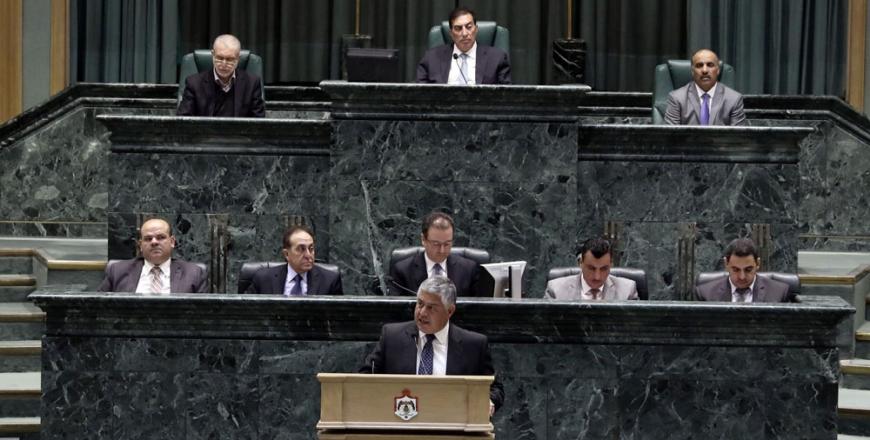You are here
Gov’t to generate revenues through tax hike on non-essentials
By Mohammad Ghazal - Jan 30,2017 - Last updated at Jan 30,2017
AMMAN — The government will take several belt-tightening measures and increase sales tax on several commodities to generate JD450 million in revenues this year to help offset the budget deficit, Minister of Finance Omar Malhas said Monday.
As part of economic reforms under the International Monetary Fund's (IMF) Extended Fund Facility, the government will take a series of measures that “will not affect the limited- and middle-income brackets of society”, said the minister at a meeting with editors-in-chief and heads of economic departments at media outlets.
"When studying all the upcoming increase in taxes and measures, we took into account all factors to not affect these two segments," he said.
Prices of commodities that are not considered essential items and not consumed by the majority of Jordanians will have a sales tax increase.
Around 35 per cent of the JD450 million that need to be generated this year will come from the increase in sales tax on these goods and services, he said.
The 2017 state budget deficit, after grants, shrank to JD827 million or 2.8 per cent of GDP, compared with JD1.097 billion or 4 per cent of GDP in 2016.
More than 70 per cent of the commodities will not witness any tax increase, said the finance minister.
Some measures will be announced soon to increase revenues from the telecom sector, he said without elaborating.
“These measures will be announced soon”, said Malhas, reiterating that they were taken with the consent of the stakeholders in the ICT sector.
The minister expected a state budget with no deficit by 2020-2021 if all economic reforms are taken and followed.
A 9-per cent sales tax will be imposed on commodities in Aqaba. Prices of cigarettes in Aqaba will be increased and will be similar to prices everywhere else in the country, said Malhas.
Minister of State for Media Affairs Mohammad Momani said the government decided to go to the IMF as it is confident of the strength of the economy and its ability to absorb economic reforms.
Momani, who is also the government’s spokesperson, added that implementing a programme with the IMF is essential for Jordan to have access to loans and grants from donor countries.
“Having a programme with the IMF in place sends strong messages of confidence in the country and its ability to conduct reforms,” said Momani.
“The Jordanian economy is solid and strong and it has managed to withstand several challenges over the years and the fact that we are announcing a series of economic reforms is based on the fact that we are certain in the ability to take such necessary steps,” he added.
In an interview with Jordan TV on Friday, Prime Minister Hani Mulki said the economy is still strong and resilient despite the effects of the so-called “Arab Spring” that started in 2011, the global economic crisis, border closures and hosting Syrian refugees.
He added that several measures were also taken to tighten spending.
Related Articles
AMMAN — The Lower House is scheduled to start on Sunday the debate over the 2017 draft laws for the state budget and the budgets of independ
AMMAN — The Lower House on Wednesday listened to the state budget draft law speech delivered by Finance Minister Omar Malhas, the Jordan New
AMMAN — The Lower House committee to follow up on prices has estimated that the total revenues to be generated by the latest price and tax h















